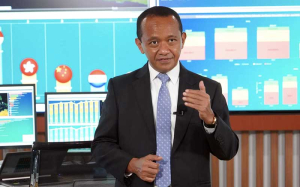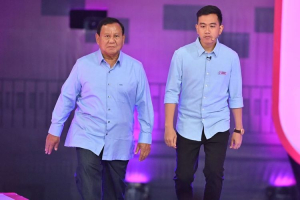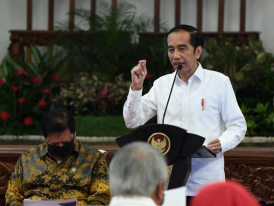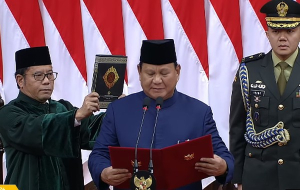OCCRP clarifies Jokowi's inclusion in 2024 Most Corrupt Nominee list
The Organized Crime and Corruption Reporting Project (OCCRP) has clarified the inclusion of Indonesia’s 7th President Joko “Jokowi” Widodo in the nomination list of the most corrupt figures in 2024.
OCCPR admitted that it had no evidence, but Jokowi's administration significantly weakened various state institutions in terms of eradicating corruption.
OCCRP stated that various civil society groups and experts said the Jokowi administration has significantly undermined anti-corruption commissions, such as the Corruption Eradication Commission (KPK).
OCCRP also explained that Jokowi was criticized for allegedly damaging the general election process and benefiting Gibran Rakabuming Raka, his son who became Prabowo Subianto's Vice President.
"There is a strong perception among citizens of corruption. It should be a wake-up call to those who are nominated that the public is watching. (and) We will continue to watch," Drew Sullivan, publisher of OCCRP, said on Friday, January 3, 2025.
OCCRP said they had no control over who was nominated, including Jokowi. They submitted finalists based on the most support online.
Meanwhile, the winner of the most corrupt figure award in 2024 is Bashar Al Assad, the former leader of Syria. Because of Assad's role in destabilizing Syria, human rights violations including mass killings, to corruption.
The award is also decided by a jury consisting of civil society, journalists, and academics. OCCRP also received more than 55,000 candidates, including well-known political figures and unknown individuals.
OCCRP's final selection process is based on investigative research and the collective expertise of the organization's network. OCCRP said the designation highlights the systems and actors that enable corruption and organized crime.
OCCRP also cited that this title is sometimes misused by some parties who want to advance their political agenda. However, OCCRP said, the awarding of the title is given to provide recognition for crimes and corruption.
Furthermore, OCCRP will refine the nomination and selection process and ensure transparency. The report will continue to focus on the impact of corruption and the role of figures deemed to undermine democracy.
Tag
Already have an account? Sign In
-
Start reading
Freemium
-
Monthly Subscription
30% OFF$26.03
$37.19/MonthCancel anytime
This offer is open to all new subscribers!
Subscribe now -
Yearly Subscription
33% OFF$228.13
$340.5/YearCancel anytime
This offer is open to all new subscribers!
Subscribe now






